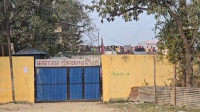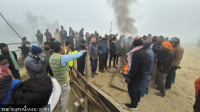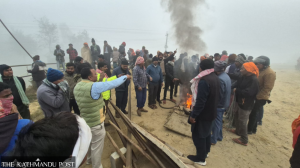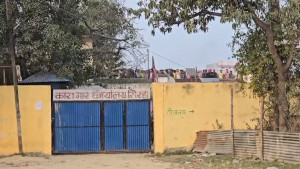Madhesh Province
Voters in Parsa unenthused about provincial candidates
While federal-level candidates are familiar faces, those contesting provincial seats are mostly unknown.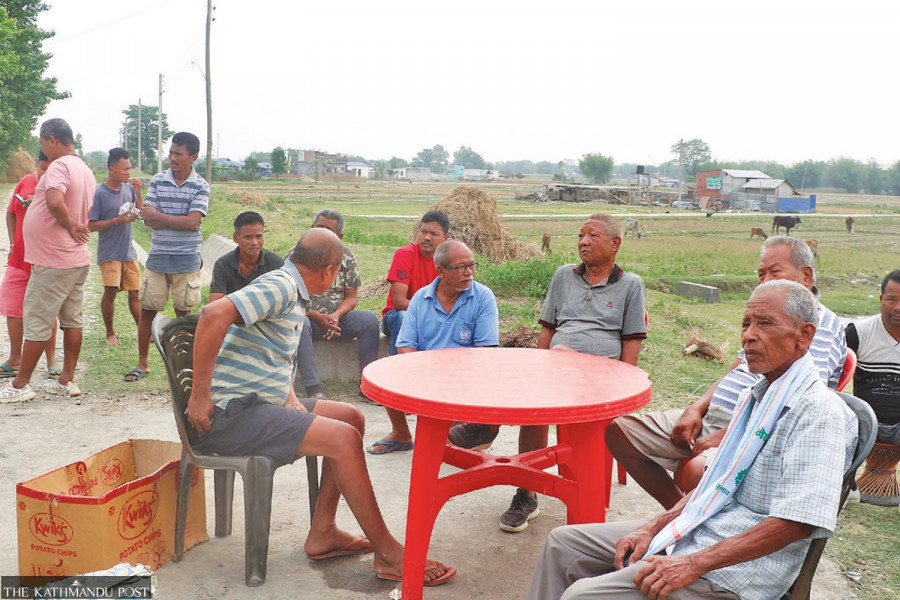
Nishan Khatiwada
Political observers have repeatedly warned of how holding the federal and provincial polls together could put the latter in the shadows. No prominent leader wants to contest from the provinces and even if they do, it is alleged, all they want is the chief minister’s seat.
The situation in Parsa of Madhesh province is no different. Many people the Post spoke to could quickly tell the names of federal election candidates but were unaware of those contesting provincial assembly seats from their constituencies.
When asked about the candidates for the provincial assembly from Parsa constituency-2, 80-years-old Basudev Raya from Bagahi thought deeply for a while but could not say their names. However, he quickly blurted out the names of major candidates for the federal polls. “In our constituency, Ajay Kumar Chaurasiya from the Congress and Surendra Prasad Kurmi from the Janata Samajbadi Party are contesting,” he said with confidence.
The Janata Samajbadi Party has forged an alliance with the CPN-UML in the constituency.
When the Post asked how he would cast his votes without knowing the names of candidates, Raya replied, "I will vote for the candidates who my family trusts with bringing development to the constituency.”
Ganga Sagar Patel, 28, owns a pharmacy in Pakahamainpur rural municipality. When asked about candidates, he could quickly answer that while Surendra Chaudhary is the candidate of the ruling alliance, the UML-JSP coalition has fielded UML leader Raj Kumar Gupta in the federal polls from constituency 3 (his constituency). But when asked about provincial candidates, he said he needed to look at the official candidate list.
Likewise, 26-year-old Radheshyam Patel from constituency-3 who is a driver by profession, also knows the names of federal candidates. “But I can’t remember the names of provincial candidates. Are there candidates for provinces in the constituency? I don’t know,” he added.
Lack of knowledge about provincial-level candidates was pervasive and seemed to span caste and gender lines.
One such respondent was Radha Devi Yadav, 43, a homemaker from Birgunj Municipality. She too recalled the names of candidates for lower house and also the name of a popular rebel candidate—Ajaya Dwivedi—in her constituency. (Dwivedi was also former president of the District Chapter of the Nepali Congress.) When asked about provincial assembly candidates, she replied, “No I don’t know their names.”
Observers say this lack of knowledge about provincial candidates is not without reason.
Conducting federal and provincial polls together has undermined the value of the provincial polls and by extension of the provinces, according to Chandra Kishore, a journalist based in Birgunj, who has for long followed Madheshi politics.
The local and provincial polls should have been conducted together or the provincial polls should have been conducted separately, he said. "Now, people don't even know the names of the candidates. Voters have also been confused by alliances among parties with vast ideological differences.”
The Madhesh provincial assembly has 107 seats.
In the 2017 provincial polls, the Rastriya Janata Party had won 15 seats, Sanghiya Samajbadi Forum 20 seats, the Nepali Congress eight, UML 14, the Maoist Centre six and an independent one seat, under the first-past-the-post election system.
Sohan Shah, a commentator on Madhesh politics, said federal candidates are better known because they are established faces.
"Unlike the federal-level candidates, political parties have fielded mostly unknown faces in provincial assembly seats," he said.




 13.12°C Kathmandu
13.12°C Kathmandu

